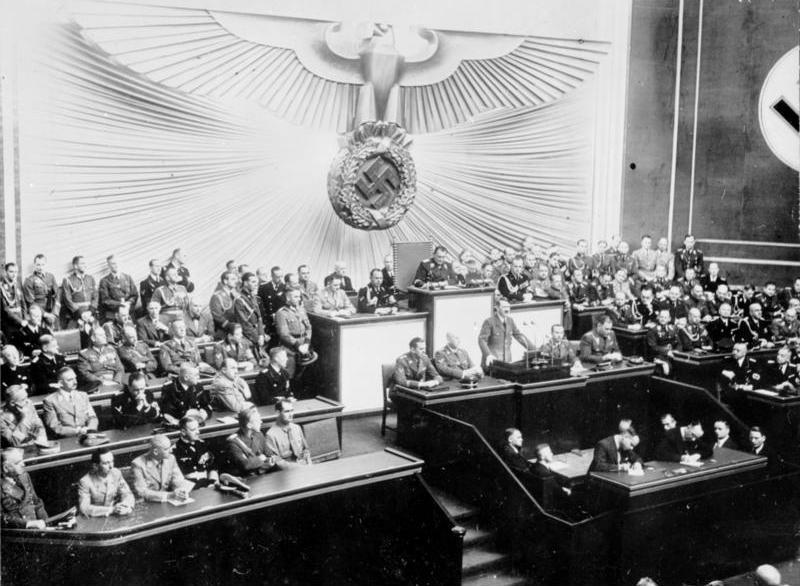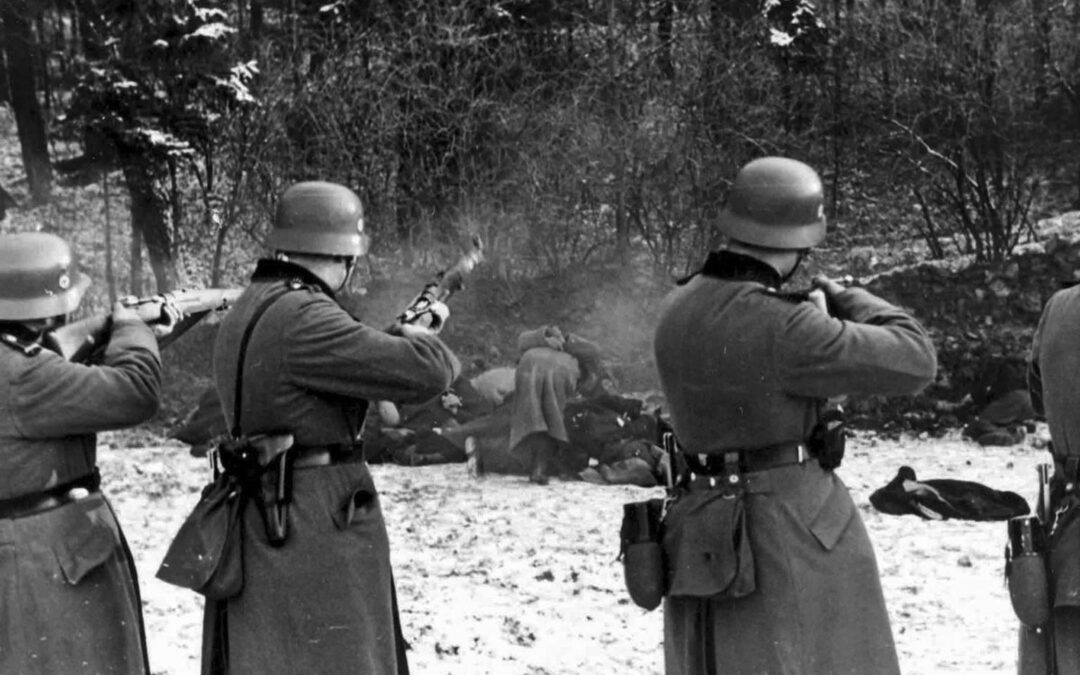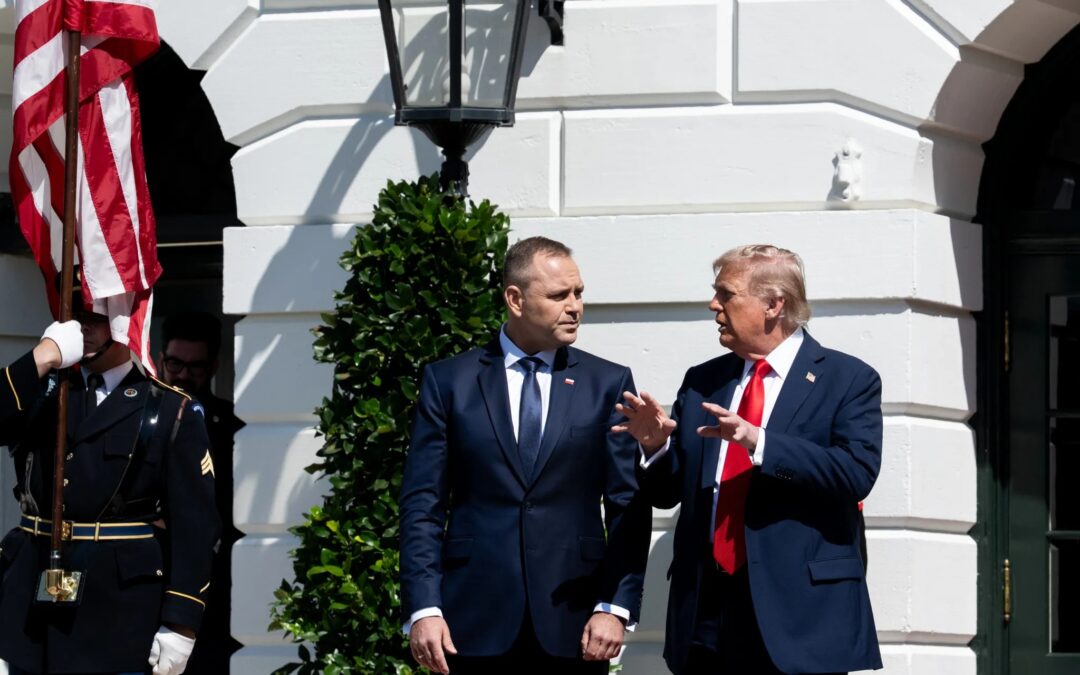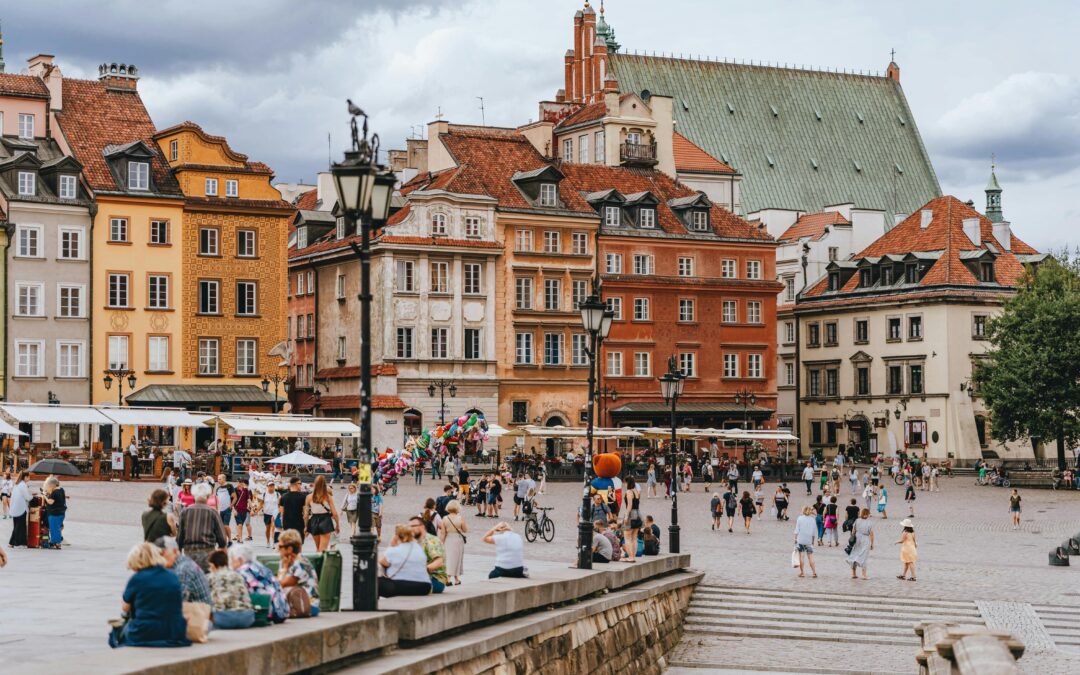Germany has outlined plans for a new institution in Berlin that will be dedicated to historical relations with Poland, and in particular to the atrocities committed during the Nazi-German occupation of World War Two.
Outlining the plan for a new “Polish-German House, as the project is known, Claudia Roth, the federal commissioner for culture and media, described it as “one of the most important commemorative and cultural-political projects in Germany”, reports broadcaster ZDF.
“The planned Polish-German House is to commemorate the suffering that took place in Poland in the years 1939-1945, as well as the cruel death of over five million Polish citizens, including approximately three million Jewish children, women and men,” she added, quoted the Polish Press Agency (PAP).
Eckpunktepapier für Deutsch-Polnisches Haus liegt vor. Der Gedenkort wird den polnischen Opfern des Zweiten Weltkrieges gewidmet sein. „Eines der wichtigsten erinnerungs- und kulturpolitischen Projekte der Bundesregierung“, so Claudia #Roth.#Polen https://t.co/dYl61fuj5c pic.twitter.com/8TcgmbnUs2
— BKM Kultur & Medien (@BundesKultur) August 29, 2023
The Polish-German House will be located in the centre of the capital, near the German Chancellery that serves as the centre of the federal government, said Roth.
The currently planned location is the former site of the Kroll Opera House, which functioned as the assembly hall of the Reichstag – Germany’s parliament – from 1933 to 1942. It was there, on 1 September 1939, that Adolf Hitler announced the attack on Poland.

Hitler announced the attack on Poland at Kroll Opera House – then serving as the assembly hall of the Reichstag – on 1 September 1939 (German Federal Archives/Wikimedia Commons, under CC BY-SA 3.0 DE)
Almost six million Polish civilians – around half of them Polish Jews – are estimated to have died as a result of the subsequent war, representing 17% of the pre-war population. That was the highest proportional death toll of any country during World War Two.
The German occupiers also laid waste to many Polish cities – including the capital, Warsaw, which saw around 85% of its buildings destroyed – and plundered or destroyed much of Poland’s cultural heritage.
That painful legacy continues to cause tensions today, in particular in recent years under Poland’s national-conservative Law and Justice (PiS) government, which has launched a bid to obtain war reparations from Germany. Berlin argues that there is no legal basis for those claims.
Germany's ambassador has warned Poland not to "open the Pandora's box" of war reparations because "nothing good would come of this for Europe".
But he also admitted that Germany's support for the Nord Stream gas pipelines from Russia "was a mistake" https://t.co/fLSbOKVMXe
— Notes from Poland 🇵🇱 (@notesfrompoland) May 24, 2023
While focusing on wartime atrocities, the planned Polish-German House is also intended to show historical ties before and after the war, including Germany’s role in the partitions of Poland from the late 18th to early 20th century, the migration of Poles to German lands, and Poland’s integration into the EU and NATO.
“We Germans, and that includes me, still have a lot to learn,” said Roth, quoted by broadcaster Deutsche Welle. “Our knowledge of Poland still has many blank spots. This applies both to the extent of German crimes [in Poland] and to Poland’s contribution to the history of Europe.”
Roth said that she intends to submit a formal proposal for the project, including a timeline for its creation, by spring 2024. The German Poland Institute (DPI) and Foundation Memorial to the Murdered Jews of Europe have also been involved in preparing the plans.
The DPI’s director, Oliver Loew, said that the memorial – the idea for which was approved by the Bundestag in 2020 – will be “a beacon of German empathy for Poland, which has often been lacking in the past”, reports the Tagesspiegel daily.
The presidents of Poland, Germany and Israel have jointly commemorated the 80th anniversary of the Warsaw Ghetto Uprising.
During his visit, Germany's president was handed a copy of Poland's claim for war reparations by a Polish government minister https://t.co/KRGRvnk8rS
— Notes from Poland 🇵🇱 (@notesfrompoland) April 19, 2023
Roth also emphasised that “we want to implement [this project] together with Poles”, notes broadcaster Deutsche Welle. She hopes that this will help “build trust, friendship and mutual strength” between the two countries and their peoples.
Poland’s ambassador to Germany, Dariusz Pawłoś, has cautiously welcomed the proposal, saying that he is “keeping his fingers crossed” for it, reports ZDF. Poland will offer “our support, our help, our open-mindedness”, he told the DPA news agency.
However, conservative Polish news website wPolityce, which is supportive of the ruling PiS party, expressed concern that Germany is not planning to build simply a memorial to victims but instead a much broader institution – including a restaurant and library – that will examine centuries of history.
“In this way, the history of the brutal German occupation will be blurred, negating what is important, because it is set in a broader context,” wrote commentator Aleksandra Rybińska.
.@ARybinska: „Historyczno-krytyczne oznaczenie” zamiast pomnika, czyli jak Berlin zamierza upamiętnić zamordowanych w czasie II wojny światowej Polaków https://t.co/iU7qv1BKpA
— wPolityce.pl (@wPolityce_pl) August 29, 2023

Notes from Poland is run by a small editorial team and published by an independent, non-profit foundation that is funded through donations from our readers. We cannot do what we do without your support.
Main image credit: National Digital Archive/Wikimedia Commons (under public domain)

Daniel Tilles is editor-in-chief of Notes from Poland. He has written on Polish affairs for a wide range of publications, including Foreign Policy, POLITICO Europe, EUobserver and Dziennik Gazeta Prawna.



















